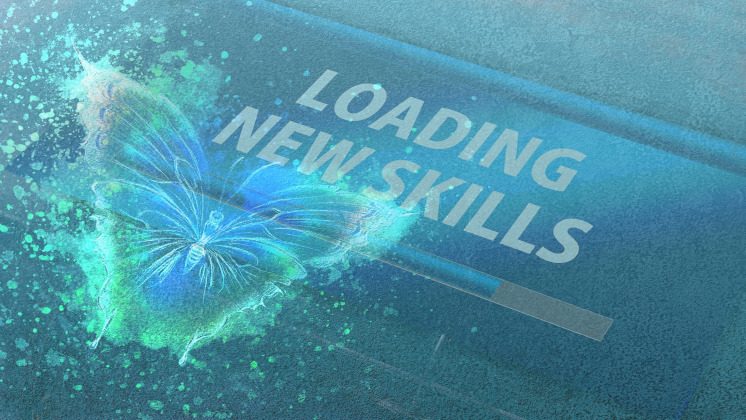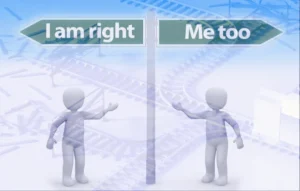In today’s fast-paced work environments, we face constant changes and technical skills are always in demand. As organisations strive to adapt to technological advancement the role of transferable skills in lifelong learning becomes prevalent. Transferable skills are key skills capable of unlocking your full potential. We’ll explore what transferable skills are, and how they can influence your career development and personal growth.
What are transferable skills?
Skills or skill set concept is often used interchangeably with competencies, aptitudes, and capabilities. The transferable skills have an interdisciplinary nature. They apply to different industries and work environments. There are a lot of skill classifications and there is no consensus on their definitions.
Among these myriad of skills classifications, there are the so-called transferable skills. To some extent and in different contexts, transferable skills are also named portable or transversal skills. The European Classification of Skills, Competences and Occupations (ESCO) differentiates between skill or competence and knowledge concepts. It does that by indicating skill types structured in a hierarchy which also contains transversal skills.
The EU competency framework is based on the KSA model “a combination of knowledge, skills and attitudes”. In this framework skills are defined as “abilities to carry out processes and use the existing knowledge to achieve results”. EU officials have to fulfil eight general competencies classified as transversal. However, there are slightly different opinions about the definition of competency.
AI tools and skills
AI tools are changing the learning process and the skill sets needed for innovation and implementing new technologies. Because of the adoption and evolution of AI across companies and institutions, the skill sets including soft skills will change. In-demand skills for automation and developing robotics are a mix of soft and hard, technology, organisational and business skills.
According to a qualitative study most managerial skills are likely to be augmented by AI. Skills like information gathering and simple decision-making will be replaced while skills like leadership and imagination will likely remain the same.
What is the difference between transferable skills and soft skills?
Transferable skills and soft skills are sometimes used interchangeably, but they are not the same thing. The main difference between these categories of skills relates to their transferable characteristic. Transferable skills are capabilities that can be used meaning transferred across various types of jobs, industries, and life circumstances.
The transferable characteristics of skills include and apply to different skills like technical, managerial, and business skills. However, soft skills are non-technical skills and are not necessarily transferable to every work environment or life context.
These skills can be related to personality traits or cognitive capabilities and can be technical or business-related. For example, efficient communication, empathy, teamwork, time management, problem-solving, critical thinking, and creativity are transferable skills. But so are the business-related skills like marketing, and data analysis. Leadership skills are complex and might be transferred to other leading roles implying decision-making, delegating, and motivating teams.
Why are transferable skills important?
Transferable skills are mainly core or general skills that are valid for multiple jobs and different industries or work environments. The most important characteristic of transferable skills is that they are critical when it comes to switching jobs and reskilling.
Generally, these skills contribute to our capacity to adapt and successfully perform in different working environments. Transferable skills are a core skill set that always accompanies and helps us adapt to changes. We are on a lifelong journey to learn and grow personally and professionally.
We develop transferable skills through work experience, training on the job, and formal or informal education. Skills are characterised by different aspects like specificity, level of experience, as well as their level of complexity. Transferable skills can help surpass learning curves, improve work performance and contribute to personal growth. They can be both hard and soft skills and technical, managerial, or business-related.
Future skill sets will be multidisciplinary and transferable
Hard skills are technical skills specific to a job or industry like programming, graphic design, and data analysis. A robotics system study shows that software programming knowledge is important but it should be mixed with practical skills. Overall, it seems that multidisciplinary and transferability are the main characteristics of the future skill sets.
Acquiring skills takes time and effort, but new skills will increase our capacity to adapt. Also, a complex skill set will help fulfil new responsibilities and improve long-term employability. Whether working in another environment or solving problems, the transferable skill levels will reflect your performance and overall productivity.
Lifelong learning and transferable skills
With a strong transferable soft skill set, you will be able to accept new complex roles and responsibilities. These skills are related to personal qualities, point out to employers that you might be competent in various organisational roles. Developing a complex and versatile skill set is a lifelong path to unlocking your potential.
3 important skills for lifelong learning:
- Problem-solving
Problem-solving is a core skill that applies to almost every aspect of professional and personal life. It implies knowledge, past work experiences and abilities from both professional and personal areas.
Problem-solving refers to analysing and identifying solutions to solve issues and surpass obstacles. Also, solving problems or even just contributing to solving them will gain the trust of your colleagues. Having a systematic approach to analysing and resolving problems would demonstrate a good level of problem-solving skills.
- Efficient communication
The ability to communicate efficiently, clearly and concisely is important so you can be able to create and maintain relationships. Communication is a basic skill and an ongoing challenge for everyone no matter the profession or level of proficiency. Using concise, adapted and transparent language shows that you have an efficient communication style and you are a good communicator.
- Creative thinking
Currently, creativity is one of the most valued skills due to emerging AI tools. It is classified as a capability or competence that sets human intelligence apart from artificial intelligence. It refers to the ability to come up with different ideas, new and unique approaches or solutions. Creativity is a complex capability and is linked with other skills like problem-solving, self-reflection or active listening. Also, it is a lifelong learning evergreen ability that can transform and transcend our personal growth.
Transferable skills can help pursue career aspirations
The learning process is easier with strong transferable skills because it offers a starting building block based on skills you already possess. These skills are lifelong valuable and versatile assets. They can serve as a core skill set helping you gain confidence in your competence and reach learning objectives faster.
Possessing a versatile set of transferable skills is important for learning new skills, and personal and career growth. By developing skills, we gain confidence in our strengths and feel accomplished both personally and professionally. Transferable skills will certainly help us evolve and pursue our desired career aspirations.





